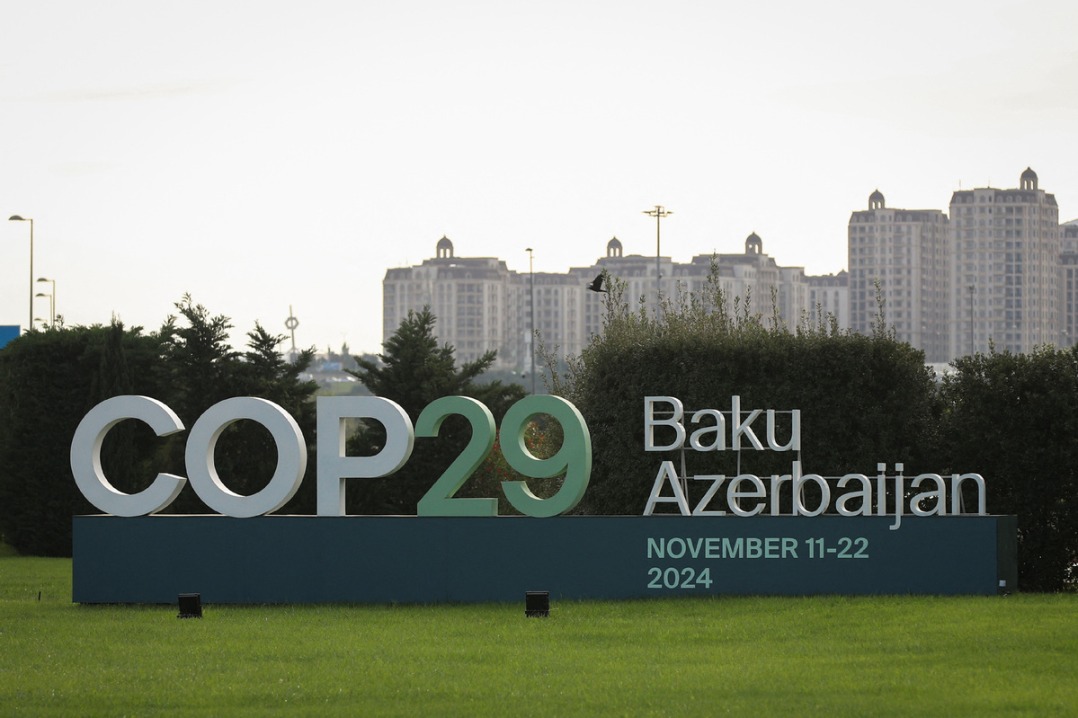Optimizing climate health adaptation policies


At the just-concluded UN Climate Change Conference, or COP29, in Baku, Azerbaijan, health amid climate change was a prominent subject of discussion. Climate change does pose a serious threat to the health and wellbeing of people around the globe, because it is responsible for the increasing extreme weather events such as extreme heat, floods and forest fires.
According to a World Health Organization report, climate change is impacting human health in a myriad of ways, causing food-, water- and vector-borne diseases, including fatal health conditions, as well as increasing mental health issues and disrupting food production and supply.
A 2022 review published in Nature Climate Change showed that of the 375 infectious diseases under study, 218(58 percent) had been aggravated by climate change. An increasing number of studies have also examined the economic impacts of climate change on human health. For example, Xie Yang, a professor at Beihang University, found that from 1960 to 2020, the monetary value of deaths caused by heat waves in China added up to about 1.28 trillion yuan ($176.66 billion), while the economic losses caused by cold waves were as high as 1.51 trillion yuan.
Thankfully, global efforts are being made to combat climate change and protect people from its impact. The 28th Conference of the Parties to the UN Framework Convention on Climate Change (COP28) hosted the climate change conference's first-ever Health Day in Dubai on Dec 3, 2023, with more than 40 million health professionals joining the WHO's call for prioritizing people's health amid worsening climate change.
This led to a wide variety of officials, professionals and other entities including ministers, climate and health experts, civil society organizations, youth representatives and businesses coming together to make the climate-health agenda mainstream.
In order to meet the challenges created by climate change, especially to safeguard people's health by, among other things, preventing health risks, the Chinese Center for Disease Control and Prevention, the National Development and Reform Commission, the Ministry of Finance, the Ministry of Ecology and Environment and other departments jointly issued the "National Action Plan for Health Adaptation to Climate Change (2024-30)" in accordance with the requirements of the National Climate Change Adaptation Strategy 2035. The plan will not only help combat climate change but also prompt people to adapt to climate change, promoting the construction of a healthy and beautiful China.
But if the policies of disease control, health, environment, water conservancy meteorology and other departments are not effectively coordinated and integrated, the plan cannot achieve its desired goals.
Hence, we must lay equal emphasis on climate change mitigation and adaptation measures. To achieve this, the authorities should establish a multi-departmental climate change and health work collaboration mechanism. By establishing a cross-departmental working mechanism, the authorities can facilitate smooth information sharing and thus make decision-making easier.
There is also a need to establish an early warning mechanism. By issuing early warnings for extreme weather events such as heat waves and cold waves, floods and heavy downpours, the authorities can help the public, medical workers and medical institutions better prepare for climate emergencies.
Like many other countries, China, too, should publish assessment reports every year. For example, the "Health Effects of Climate Change in the UK — State of the Evidence 2023" issued by the British government, assesses the threats climate change poses to public health, and suggests how to fill the gaps and what steps need to be taken to fight climate change. The United States, on its part, has set up a "Heat and Health Index", which matches heat-related diseases by postal code to build a national database that can help state officials identify areas most likely to experience negative health impacts due to extreme heat, and take measures in advance to strengthen resilience.
Besides, to ensure everyone is equally equipped to adapt to climate change, it's necessary to educate the public about how to prevent climate risks and take precautions against weather-related events. Promoting low-carbon and green living concepts among the people, too, is necessary to combat climate change.
Since China is a vast country, with different climate zones and stages of urbanization, the impact of climate change on different regions is different. In addition, the impact of climate change on different groups of people is also different. Those who are at a higher risk of exposure to climate-related health threats should be advised to take necessary preventive measures; they should also be provided with high-quality medical services in times of emergency.
Climate change is a common global challenge. No country is immune to its effects. Therefore, we must strengthen the global fight against climate change, increase technical support to countries and regions along the Belt and Road to enable them to mitigate and adapt to climate change. Only by fostering global cooperation, sharing innovative solutions, and building climate resilience together can we ensure a sustainable future for all.
Wang Yisheng is a PhD candidate at the Department of Social and Ecological Civilization, Party School of the CPC Central Committee (National Academy of Governance); and Xie Yang is an associate professor at Beihang University. The views don't necessarily reflect those of China Daily.
If you have a specific expertise, or would like to share your thought about our stories, then send us your writings at opinion@chinadaily.com.cn, and comment@chinadaily.com.cn.

































